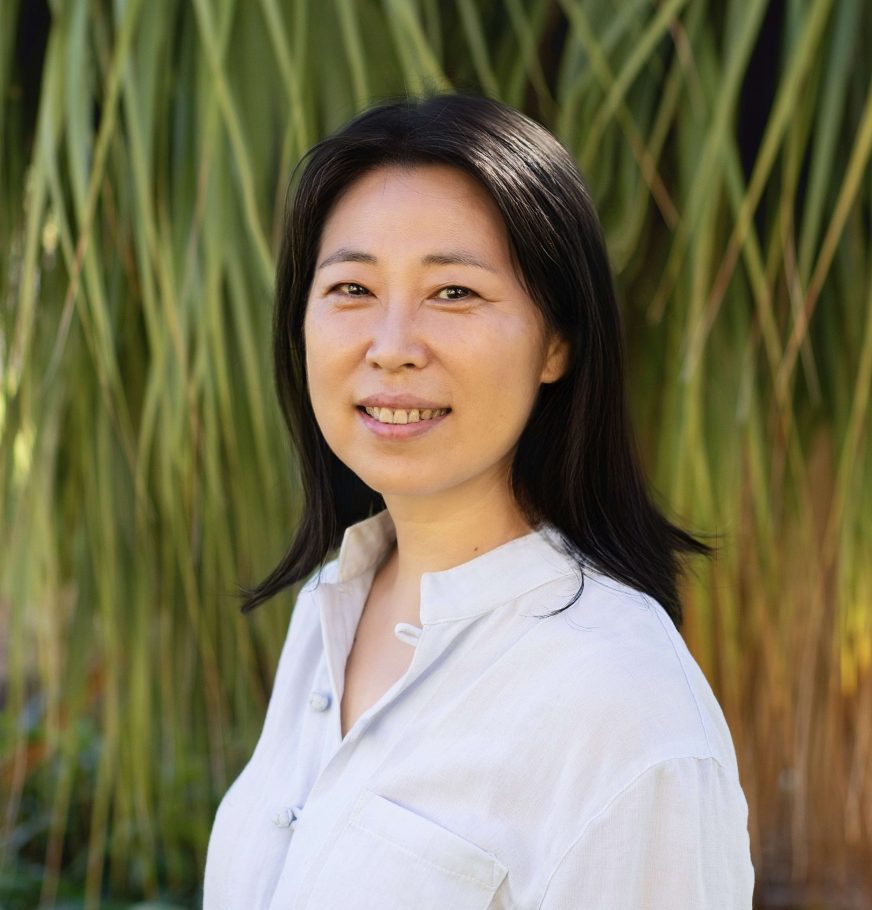
Moore Hall 585
808.956.9537
zhengd hawaii.edu
http://manoa-hawaii.academia.edu/DongpingZheng
https://orcid.org/0000-0002-8725-1034
Dongping Zheng is an associate professor in the Department of Second Language Studies at the University of Hawai‘i at Mānoa. Her research, teaching and service can be holistically described as interdisciplinary and multifaceted in cutting edge methodologies and technologies. Shs been adamantly embracing the Distributed Language perspectives in her applied work and an active board member of The International Society for the Study of Interactivity, Language, and Cognition (ISSILC). She studies how to design distributed language learning environments to foster emerging bilinguals to take skilled linguistic action (including pragmatics and mindful action) that has a positive effect in environmental awareness, caring, creativity and bilingual/bicultural development. For example, Guardians of the Mo‘o Mobile App was created for international students’ behavior patterning and participating on UH campus, and East-West Center campus. This design-based research investigates the process of becoming community members of the additional language environment. Her current project is in collaboration with VISLAB at the Chinese Academy of Forestry, creating a wild panda reserve Virtual Reality. Taking into consideration the harmonious unity of nature and humanity leveraging VR and AI features, the virtual reserve may play a key role, along with artifacts in the larger ecosystem, to cultivate environmental awareness and new languaging/translanguaging habits for emerging bilinguals .
Areas of Expertise:
- Ecolinguistics
- Languaging and Translanguaging
- Multimodal Analysis
- Virtual Reality, Mobile assisted language learning, and Humane AI
- Instructional Design and design-based research
Selected Publications:
Liu, X., Zheng, D., & Wu, S. (2023). Across the islands: A multimodal discourse analysis of government homepages. Visual Studies, 38(3–4), 663–680. https://doi.org/10.1080/1472586X.2022.2062443
Paul, J., Nuesser, M. & Zheng, D. (2023). An ecological psychology perspective in teaching Chinese online. Journal of China Computer-Assisted Language Learning, 3(1), 188-207. https://doi.org/10.1515/jccall-2023-0012
Zheng, D. (2023). Creating a translanguaging space through Languaging: Reflections on design as an English Language Specialist in Vietnam. Teaching English as a Second or Foreign Language Journal--TESL-EJ, 26(3). https://doi.org/10.55593/ej.26103a28
*Cui, Z., Dong, J., Liu, Y., Nuesser, M., Rickman, K., Zhang, H., Zheng, D., & Zuo, Y. (2023). Becoming a Resourceful Language Learner in a Narrative-driven Participatory Game. In M. Peterson & N. Jabbari (Eds.), Advances in digital game-based language learning (pp. 136-157). The Routledge Focus Series. (Authorship alphabetically ordered, with Zheng as the corresponding author)
*Caselli, R., Dong J., Nokes J., Nuesser M., Ritch J., Tang S., & Zheng, D. (2023) Becoming professionals: Ecological role-play. In C. Grosse & H. Wang (Eds.), Chinese for Business and Professionals in the Workplace: Reaching across Disciplines (pp. 162-181). Routledge. (Authorship alphabetically ordered, with Zheng as the corresponding author)
*Cui, Z., Dong, J., Liu, Y., Tangiyev, D. M., Nokes, J., Nuesser, M., Tang, S., Zhang, H, & Zheng, D. (2021). Design of a distributed language learning environment: Contextualizing Chinese language learning in a Panda reserve virtual reality. In Y-J. Lan & S. Grant (Eds.), Contextual Language Learning: Real Language Learning on the Continuum from Virtuality to Reality (pp. 39–70). Springer Verlag, Singapore. (Authorship alphabetically ordered, with Zheng as the corresponding author)
Wang, Y., & Zheng. D. (2021). The birth of Classical Chinese and its development: A classical case of 5E imagination. In M. Sato and J. McKinney (Eds.), 5E Cognition: Virtual Embodiment and Artificial Intelligence (pp.175–200).University of Tokyo Humanities Center.
*lead author, authorship is alphabetically ordered.